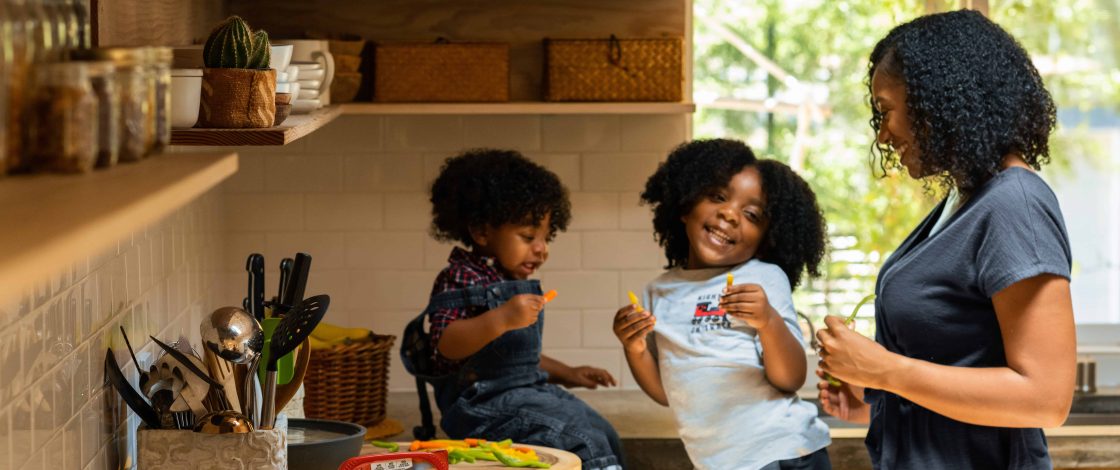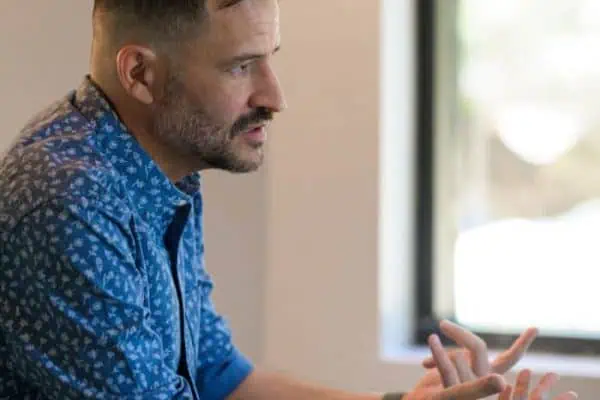ADHD After Pregnancy: Why Symptoms Can Worsen for New Moms (+ What Helps)
By William Schroeder, LPC
Quick Summary: ADHD symptoms can worsen after pregnancy due to hormonal changes, sleep deprivation, and the overwhelming demands of new parenthood. Many women are also diagnosed for the first time after giving birth. Understanding the signs, seeking support, and building helpful routines can make a big difference in managing postpartum ADHD.
You’ve probably heard of “baby brain.” That foggy feeling, forgetfulness, or inability to complete a sentence without getting distracted—most new moms experience some version of it. But if you already have ADHD or start noticing significant changes in your focus, memory, and emotional regulation after having a baby, it’s worth asking: Is this more than just baby brain?
You’re not imagining it. ADHD symptoms can get worse after pregnancy. And for some women, it’s the first time they realize they may have ADHD at all.
Watch: “In this short video, William Schroeder, LPC, explains why ADHD symptoms often intensify postpartum—covering hormonal shifts, sleep disruption, and the mental load of new motherhood.”
Can ADHD Get Worse After Pregnancy?
Yes, ADHD can get worse after pregnancy, and you’re not imagining it. Many mothers report that their ADHD symptoms become more intense or more overwhelming after childbirth. Why? A few key reasons:
1. Hormonal Shifts
Estrogen helps regulate dopamine—the neurotransmitter that plays a central role in ADHD. After giving birth, estrogen levels crash, which can cause a corresponding drop in dopamine. This may intensify symptoms like forgetfulness, emotional reactivity, low motivation, and brain fog.
Even if you managed your ADHD well before pregnancy (with or without medication), this sudden hormonal shift can make everything feel harder.
Ref: https://www.researchgate.net/publication/379144908_Pilonidal_disease_in_the_pregnant_patient_A_case_report
2. Lack of Sleep
Sleep deprivation is a near-universal part of the postpartum experience. And while all new parents are tired, people with ADHD are especially sensitive to sleep loss. A few interrupted nights can mean:
- Slower mental processing
- Decreased impulse control
- Emotional outbursts
- Trouble completing even simple tasks
This can be overwhelming with or without ADHD, not to mention the little one that’s solely dependent on you for everything—oh, and everything else you were juggling before the baby came. Sleep is essential for managing ADHD and new parenthood rarely offers enough of it.
Increased Demands and Decreased Downtime
Before the baby, your day might’ve had structure. You knew when to eat, when to shower, when to rest. After a baby? Not so much.
Now you’re juggling bottle prep, diaper blowouts, pediatric appointments, and endless laundry—all with very little downtime. The sheer volume of tasks and decision-making can completely overwhelm your executive functioning system.
This can show up as:
- Starting chores but never finishing them
- Forgetting important dates or appointments
- Struggling to create or stick to routines
- Becoming emotionally overloaded over seemingly small things
Can You Develop ADHD After Having a Baby?
It’s unlikely you’re developing ADHD for the first time. More often, this is when previously masked symptoms become unmanageable. Many women are diagnosed with ADHD in adulthood—often after a major life shift like becoming a parent. Why?
You may have:
- Always struggled with attention, focus, or impulsivity
- Created coping mechanisms that worked in structured environments (school, work)
- Relied on internal routines or external supports
Then comes the baby. The structure disappears. The stakes are higher. You can’t keep all the balls in the air—and for the first time, it’s impossible to hide it.
This is why so many women ask, Can ADHD get worse after pregnancy? What they’re often experiencing is either a noticeable escalation in existing symptoms—or a clear picture of something that’s always been there.
Wondering if what you’re experiencing is really ADHD? Or how to tell the difference between burnout and something deeper? We’re here to help you figure it out—contact us today.
How ADHD Symptoms May Show Up Postpartum
Here are some common ways ADHD might look or feel after having a baby:
- Constantly losing track of time
- Walking into a room and forgetting why
- Struggling with multi-step tasks (like preparing a diaper bag)
- Sensitivity to noise, touch, or interruptions
- Starting chores but leaving them unfinished
- Feeling emotionally overwhelmed by minor stressors
If this sounds familiar, know that it’s valid to explore what’s going on with your mental health—whether or not it turns out to be ADHD.
Why Motherhood Makes ADHD Harder to Manage
Motherhood demands the very things ADHD makes difficult: multitasking, planning ahead, emotional regulation, and memory. Before becoming a parent, you may have developed systems that worked—using calendars, batching tasks, taking breaks. Now, everything is unpredictable. You’re constantly interrupted. Tasks take longer. Your time isn’t your own. It’s easy to feel like you’re failing.
At Just Mind, we often see that postpartum ADHD symptoms trigger emotional distress. You might feel:
- Guilty for snapping at your partner
- Ashamed for struggling to keep up
- Isolated while others seem to have it “together”
- Anxious about forgetting something important
But you’re not failing. You’re parenting with a brain that processes the world differently, especially in a world that doesn’t always make room for neurodivergence.
What Helps: Postpartum Coping Strategies and Support For ADHD
Professional Support
An ADHD-informed therapist can help you better understand what’s happening and build systems that work for your current season of life. Some people benefit from medication, but this is something to discuss with a medical provider—especially if you’re breastfeeding.
Feeling like your usual coping strategies just aren’t cutting it anymore? Learn how ADHD counseling at Just Mind can help.
Externalize Tasks
Write everything down. Use alarms, sticky notes, and visual reminders. Keep it simple and consistent. Even putting your keys in the same place every day can help lower your stress.
Break Things Down
What feels like procrastination is often overwhelming. Break big tasks into smaller ones. “Clean the kitchen” becomes: put dishes in the dishwasher, wipe down counters, take out trash. Celebrate each step.
Ask for Help
Let your support system know how to help. Instead of “Let me know if you need anything,” try:
- “Can you hold the baby while I nap?”
- “Can you bring over a meal this week?”
- “Would you mind doing a grocery run?”
Be specific. You’re allowed to ask.
Invest in Your Relationship
ADHD can strain even the strongest partnerships—especially when one or both people are running on empty. Miscommunications, forgotten plans, or emotional reactivity can pile up. And in the fog of new parenthood, it’s easy to drift apart.
Spending intentional time together helps rebuild connection and reduces the emotional stress that can worsen ADHD symptoms like irritability or mental fatigue. You don’t need grand gestures—just small, consistent efforts.
- Plan low-pressure date nights (even at home).
- Share responsibilities clearly and kindly.
- Talk about what’s working and what feels overwhelming.
Connection is protective. It reminds you you’re not doing this alone.
Prioritize Your Own Needs
This one can feel impossible, especially if you’re constantly giving to others. But ADHD symptoms—especially emotional dysregulation and burnout—get worse when you never get a break. Tuning into your own needs is not selfish; it’s how you refill your tank.
And no, you don’t need a spa day (though that’s great if you can swing it). Start with something small and doable:
- Eat a meal without multitasking.
- Take a short walk or stretch in the sunlight.
- Listen to music you like while folding laundry.
- Reflect on one small win from the day.
Even 5–10 minutes a day to check in with yourself can make ADHD feel less chaotic and more manageable.
Lower the Bar
Not forever, just for now. Let go of perfection. Use paper plates. Leave laundry unfolded. Your mental health matters more than aesthetics.
When to Seek Help
If your symptoms are interfering with your ability to function or enjoy your life, it’s time to talk to someone. You deserve support that sees the whole you.
At Just Mind, our therapists understand how ADHD can impact different stages of life—including the transition to parenthood. We offer compassionate, informed support for adults with ADHD, whether you were diagnosed years ago or are just starting to explore the possibility.
FAQs
Is it safe to take ADHD medication while breastfeeding?
This is an important question to discuss with your doctor. Some ADHD medications may be considered safe during breastfeeding, but it’s essential to work closely with a psychiatrist or healthcare provider who understands both ADHD and postpartum care. Treatment plans can be tailored to support both your mental health and your baby’s needs.
How can I tell if this is ADHD or postpartum depression?
There’s some overlap—brain fog, emotional overwhelm, difficulty focusing—but they’re distinct conditions. ADHD symptoms are usually lifelong (even if undiagnosed) and revolve around attention and impulse control. PMAD symptoms often center on mood, sadness, worry, or intrusive thoughts. The best step is to talk with a professional who can help you sort out the symptoms.
Will my ADHD ever get better after having a baby?
With support, yes. ADHD doesn’t go away, but you can learn how to manage it—and thrive as a parent. Be patient and give yourself time. When your sleep is off, it will make ADHD symptoms more challenging, but that won’t last forever. It might help to think through the support you have and might need prior to giving birth. We would also suggest continuing to reevaluate your needs as time goes by since they will inevitably change. We know many wonderful happy parents with ADHD that have raised successful happy kiddos.




